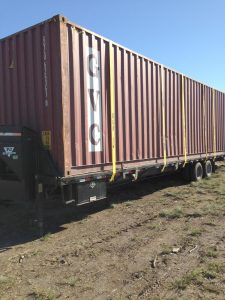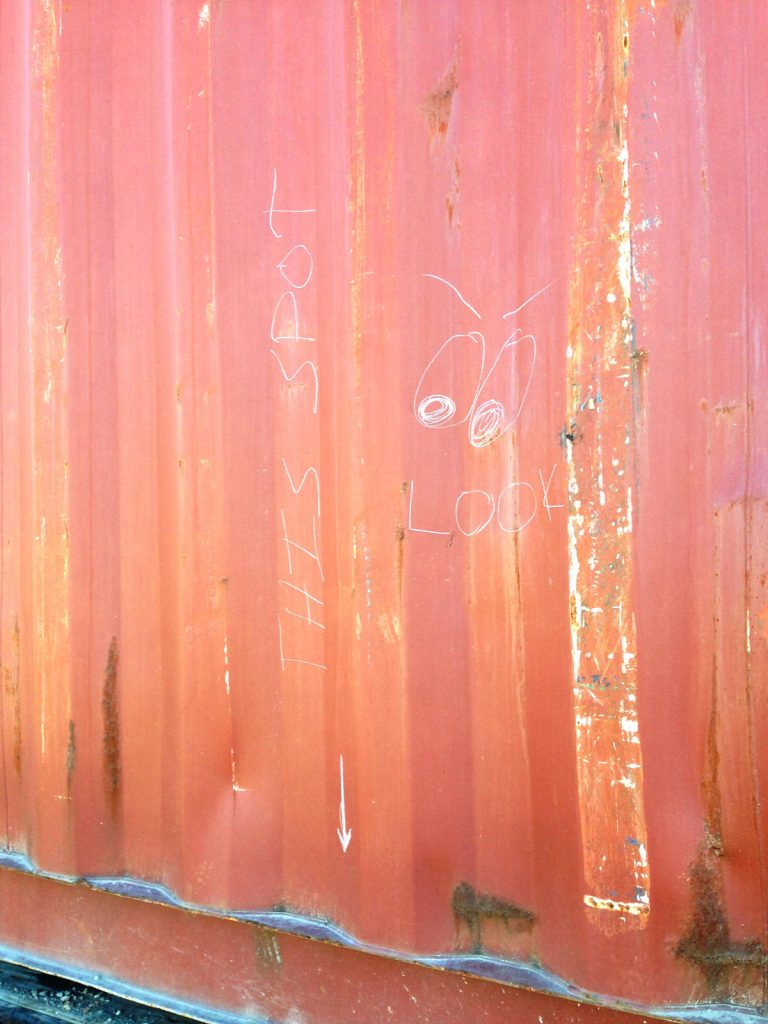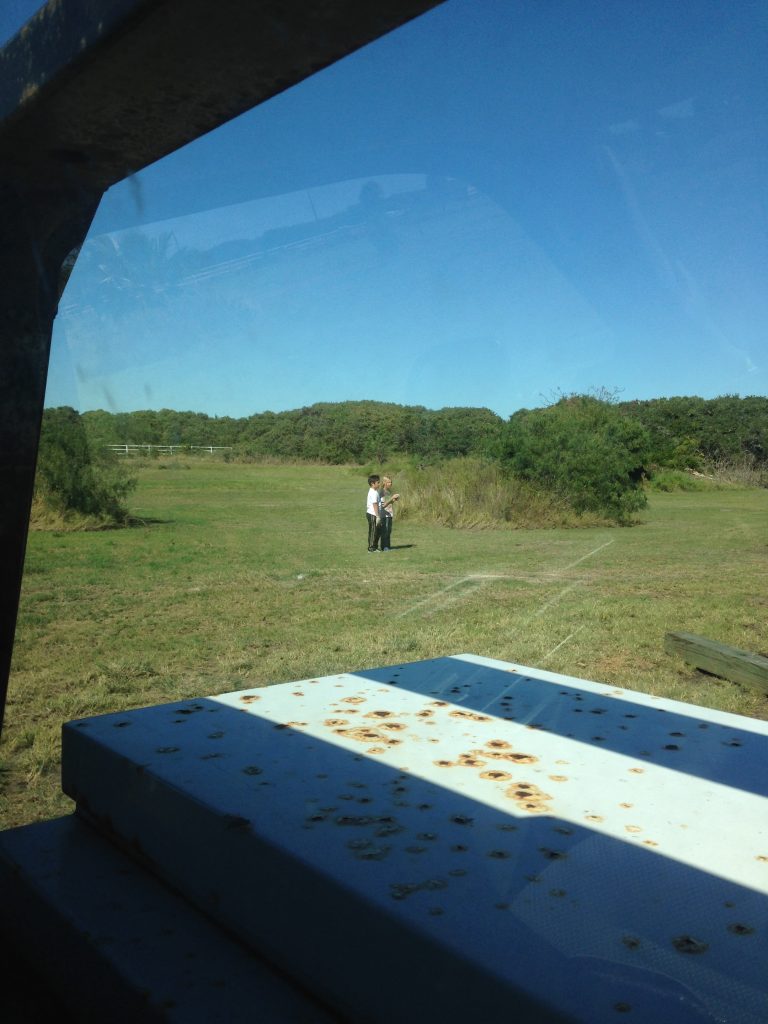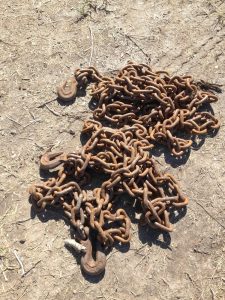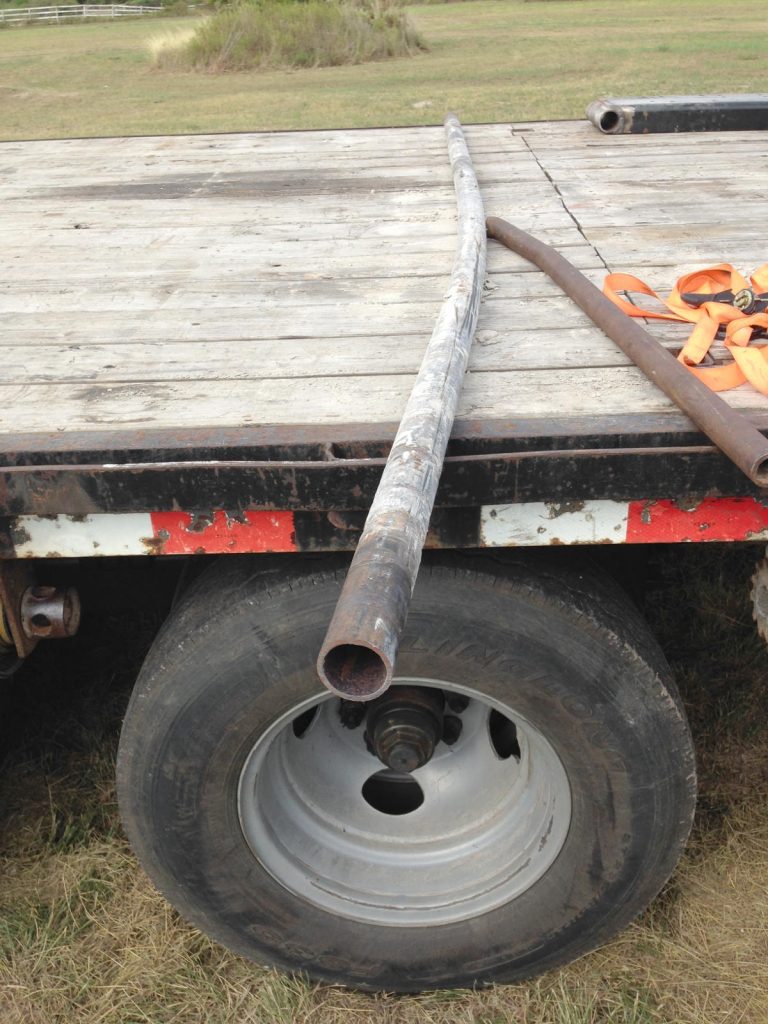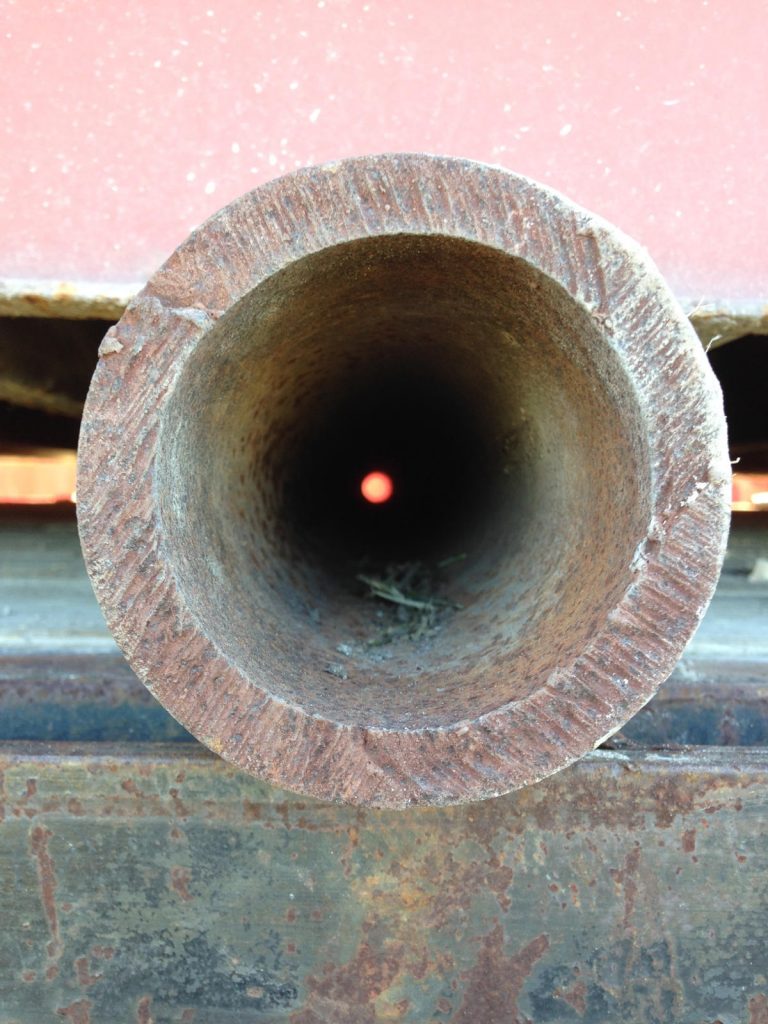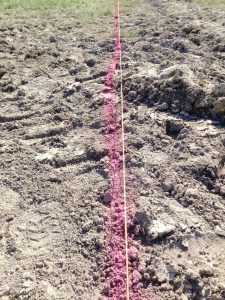
Second Easier Roll-Off
D-day, again. Today for the second roll-off job, it was just the Planner, the Kid, the neighbor kid, and me today. The Doubter had other commitments this weekend. But don’t worry, he called about a dozen times the few days before and a few dozen times over the weekend. It absolutely killed him the roll-off had to wait till Sunday to be removed from the trailer. He just couldn’t understand why it couldn’t be done earlier. It wasn’t like there was nothing else going on. Jesh.
Being the Doubter was unable to assist, the Kid was required to help. Last time, he was instructed to stay far, far, away in case things went wonky. This time, he had to act as the liaison, far, far, away, in case things went wonky. The Planner was on the tractor holding the back of the conex off the trailer bed and I was in the truck pulling the trailer out from under the box. The Planner can see the back half, I can see the front half, but neither one of us can see the side half or each other. If something needed checking a signal was given to the kid to relay. This happened a lot. Sometimes it was needed, like when the box was shifting off the trailer in the front or when one of the chains didn’t hold. Sometimes it was just to check progress. And other times it was to remind the kid to pay attention. If I had a dollar for every time he has been told to pay attention….. His second job was to watch the stopping point on the conex. The stopping point occurs when the tractor can no longer hold the weight of the conex causing the back tires to lift off the ground. Tires on the ground, good. Tires off the ground, no good. At this point, the conex is set onto the ground and drug down the ramps. The tractor is still attached to the box and the truck moves the trailer forward and out from under the box. Viola! Second box on the ground.
There is something about the sight of chains piled upon itself. Memories of other usages like the time the end drug on the pavement for miles on end resulting in a thin spot on one link, equipment hauled, vehicles towed, engines pulled, fingers pinched, clothes stained from rust and grease. Rust. Yes, rust. Hmm, come to think about it, I have never seen a new set of chains. Sets are passed from generation to generation, from one friend to another, acquired through the heres and theres. New chains? Nope, never once have I seen new chains. Don’t even know where these are bought. In all the roaming around in box stores, I have not seen a row containing chains. Oh sure I’ve seen swing set chains and thin grade chains. But not chains used for real things. Are new chains rusty? Are they bought in one length with hooks attached? No two sets are chains are the same length. Chains are never thrown away. If they become unusable or too short they are a pile. Need a short piece for a certain project? Cut off some from a broken set. Nope, never once has new chains been purchased. Interesting. These chains are massive and would be fear being twisted apart when pulling upon.
During the first roll-off job, a pipe was used allowing the conex box to roll along the trailer bed. This worked as designed until the pipe wedged against the guides at the end of the trailer. What resulted was a lovely metal pipe pretzel. For the second roll-off job, a much more industrial pipe was used. “A man’s pipe.” Pipe of this nature cause men to do men things. They grunt and point and scratch and reminisce about a time when men dragged women into caves. Like I said, pipes of this nature have strange effects on men. To the credit of the grunters, the “man’s pipe” worked like a champ. No twisting, no wedging, no pretzels. Just pipe in all its perfectness.
All things said and done, and taking the time to let the kids help, the removal of the second conex only took about three hours. Unfortunately, time was not recorded for the first removal so times cannot be compared. With no major problems, having to stop to check and double check the removal progress, and having less adults, three hours didn’t seem like a long time. In fact, it went so smoothly, only one diet drink was needed and there was time to take fun pictures and videos.
After the box was on the ground, the day’s stress level eased out. The Kid went to play, the dog was allowed to run free, and the Planner decided to start trenching. To ensure the trench was straight between the two points and allowing room to avoid the septic electrical line, a string line was used to paint along the ground. Apparently, the Planner never colored within the lines as a kid. It explains a lot, really. As it turns out, using the backhoe attachment on the tractor is a learning process. The controls are worn out and one touch could send the attachment flying in one direction or another or one touch could result in not moving at all. It didn’t take long to learn the finesse of the controls and the trenching process itself is simple. Trench until desired depth, move tractor forward two feet, repeat. Let the trenching begin.
However, nothing is as simple as it seems. Not three feet into the trenching process, the septic electrical line was snagged. Our painted line was about 1.5 feet from their trench line, yet it was still snagged. “How do I know for sure where their trench line was”, you ask.? Easy, it was the concave line running from the electrical panel to the septic pole. When a hole is dug and then filled it, the hole is never filled completely. Have shotty work done, as already discussed, and the trench line is even more concave. Fortunately, the conduit did not break, it was only bent, and as there was only one electrical line was inside the conduit meant there was lots of room for movement. Lucky break for us. Trenching continued with no further ado or problems.
Today was good day.
